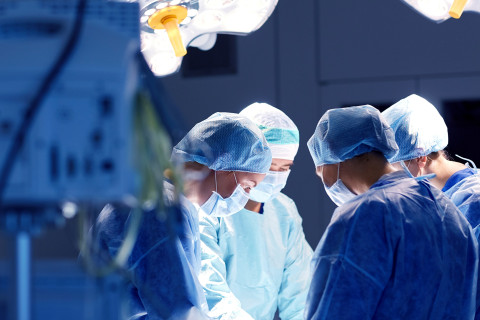An international team of researchers has carried out a detailed investigation of early cellular and molecular responses of heart xenografts transplanted from pigs to humans. Researchers from the University of Eastern Finland took part in the collaboration.
In 2022, NYU Langone Health made medical history by conducting the world’s first successful transplants of genetically modified pig hearts into human bodies. These pioneering procedures were carried out on two patients who had been declared brain-dead, with the full consent and cooperation of their families. New findings from these landmark surgeries were recently published in Nature Medicine.
The research team performed an extensive multiomics analysis, closely monitoring gene activity, proteins, lipids and other metabolites in the recipients’ blood samples in six-hour intervals after the transplants. This in-depth examination also included a single-cell analysis of the organs and the recipients’ bodies, offering unprecedented insights into the cellular dynamics at play.
The first author Eloi Schmauch, Doctoral Researcher at the University of Eastern Finland and at the Broad Institute of MIT and Harvard, comments: “The most thrilling part of this experience was undoubtedly the novelty and the sheer volume of the rich data we encountered. Witnessing the robust transcriptomic response in such high resolution provided a window into the intricate interactions at play between human and pig cells post-transplant.”
“It was particularly fascinating to identify human immune cells within the transplanted tissue, interacting with the pig tissue cells.”
The study revealed significant and rapid increases in specific types of immune cells following the transplant, leading to severe immune responses in one of the recipients. This response, classified as perioperative cardiac xenograft dysfunction (PCXD), resulted in intense inflammation and harmful tissue remodelling, which are critical areas of concern in xenotransplantation.
“The differential outcomes between the two recipients highlight the critical need for precise organ sizing and the potential benefits of additional immunosuppressive treatments,” stated the researchers. The team suggested that improvements in perfusion preservation and a revised dosage of immunosuppressants could mitigate some of the observed complications.
Eloi Schmauch emphasised the significance of these findings: "Our study not only advances our understanding of PCXD but also serves as a vital reference for optimizing xenotransplant procedures. By continuing to study these molecular signatures and their effects, we aim to refine our approaches and extend the viability of transplanted organs.”
Suvi Linna-Kuosmanen, Vice Chair of the Metabolic Diseases research community at the University of Eastern Finland, and Professor Minna Kaikkonen-Määttä of the A. I. Virtanen Institute for Molecular Sciences also participated in the collaboration.
For further information, please contact:
Doctoral Researcher Eloi Schmauch, https://uefconnect.uef.fi/en/person/eloi.schmauch/
Research article:
Schmauch, E., Piening, B., Mohebnasab, M. et al. Integrative multi-omics profiling in human decedents receiving pig heart xenografts. Nat Med 30, 1448–1460 (2024). https://doi.org/10.1038/s41591-024-02972-1



